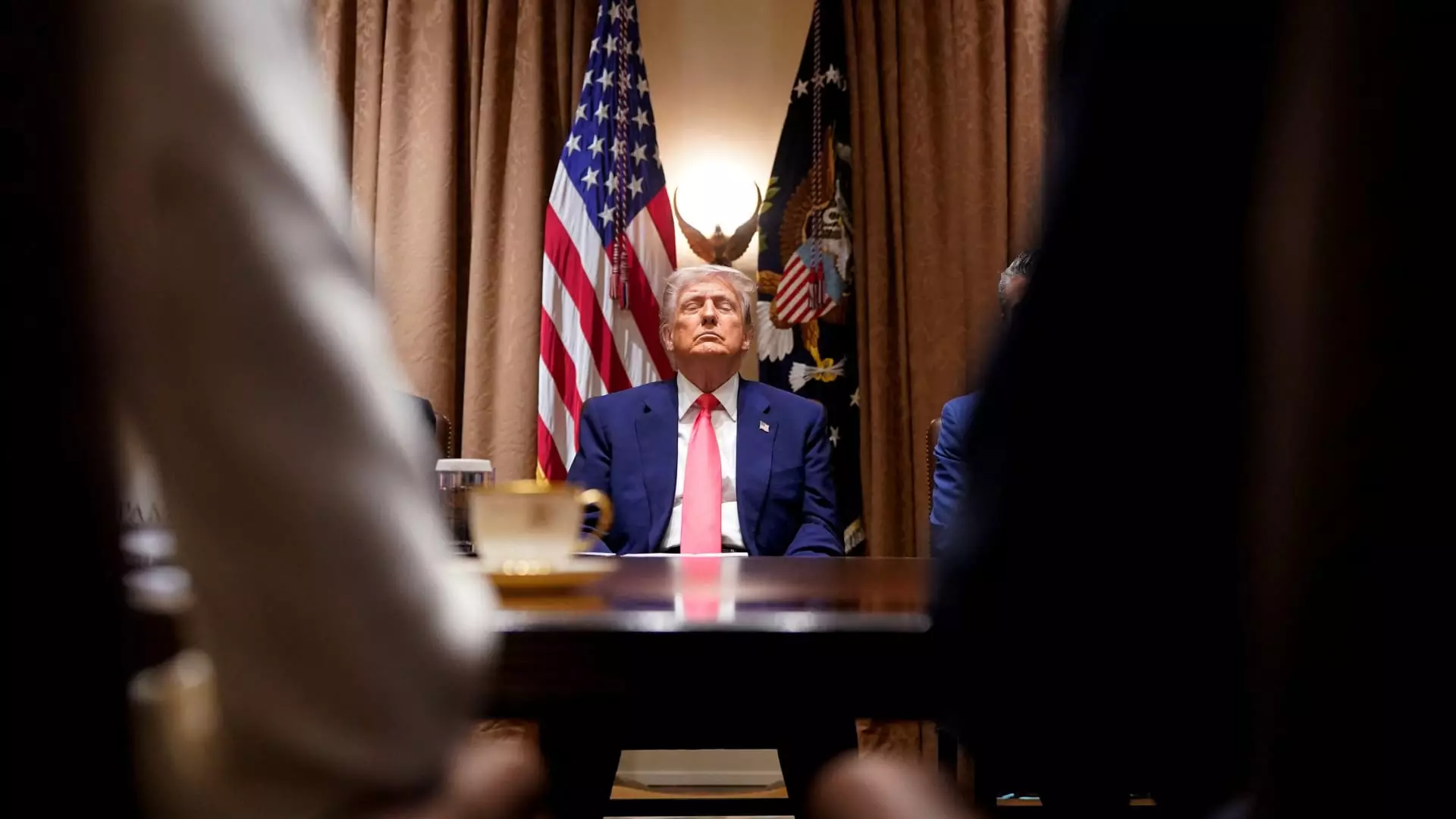In an unprecedented move that underscores the fragility of America’s economic landscape, a coalition of five small businesses has bravely stepped up to challenge the unrestrained power wielded by former President Donald Trump. By pursuing legal action to contest the new tariffs imposed on foreign imports, these businesses are not merely defending their interests; they are illuminating a pivotal issue of governance that resonates with the core principles of democracy. The lawsuit, filed in the U.S. Court of International Trade, boldly contends that Trump has systematically overstepped his authority by leveraging claims of national emergency to impose significant tariffs without congressional approval—a blatant usurpation of power that should set alarm bells ringing.
Congressional Authority Under Threat
At the heart of this legal complaint lies a stark indictment of Trump’s interpretation of the International Emergency Economic Powers Act (IEEPA). The plaintiffs assert that trade deficits alone do not constitute an emergency that justifies the implementation of sweeping tariffs. This assertion raises critical questions about the sanctity of Congress’s legislative prerogatives. The lawsuit challenges the notion that entrenched trade deficits—which have been a lingering presence in U.S.-international commerce for decades—can suddenly transform into a rationale for blanket tariffs. This endeavor to redefine the legal framework surrounding trade is not only alarming; it risks undermining the checks and balances that are foundational to American democracy.
Impact on Small Businesses: A Crisis of Survival
The detrimental impact of these tariffs on small businesses cannot be overstated. The Liberty Justice Center, representing the plaintiffs, highlights that these small enterprises are facing devastating repercussions. For example, Terry Precision Cycling reports having already incurred $25,000 in unanticipated tariff costs, with projected totals escalating alarmingly to an estimated $1.2 million by 2026. These figures reveal the brutal reality that many small businesses operate on thin margins, and such inflated costs could lead to their demise. The fear is palpable: small businesses risk being crushed under the weight of tariff obligations, with their survival hinging precariously on the outcome of this lawsuit.
A Call for Accountability
The plaintiffs are not merely seeking relief; they are invoking a greater principle—“no taxation without representation.” By insisting that the judiciary uphold constitutional tenets, they are asking all Americans to recognize the importance of accountability in governance. The fact that tariffs have even been imposed on countries with which the U.S. does not maintain a trade deficit serves to undermine the rationale of this tariff regime. Such a scattershot approach reveals the arbitrariness of the policy, suggesting that the administration’s justification is little more than an elaborate cover for unilateral action.
This lawsuit resonates as a clarion call for a principled defense of democratic process and the rights of small businesses. As we witness the unfolding of this significant judicial challenge, it’s crucial to reflect on how executive overreach threatens not just the survival of individual businesses, but the broader fabric of American democracy.


Leave a Reply